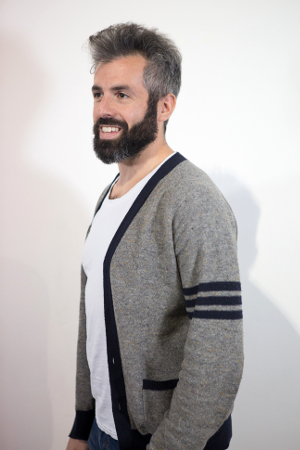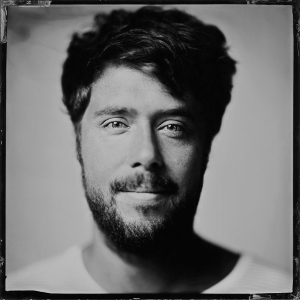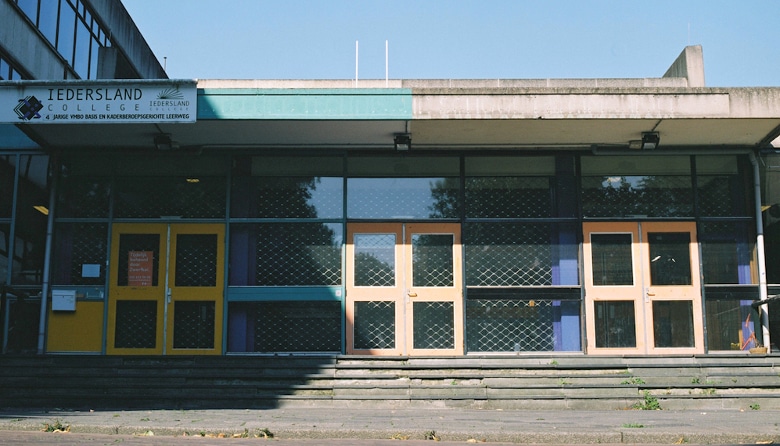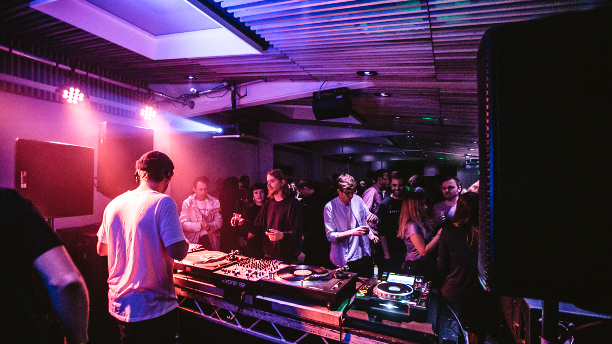Pictures: Justin de Souza: The Pickle Factory, Jordan Gross; Martijn Savenije: De School; De Plaatjesmakers (Melanie Tenhagen, Sevilay Maria van Dorst): Ernst Mertens
A German translation of this interview has been published in Groove 159 (March/April 2016).
One year after Amsterdam’s Trouw club closed, De School opened as its inofficial successor. According to founder Ernst Mertens, De School is more than just a club. Meanwhile London’s club scene has also seen a new, exciting addition thanks to Jordan Gross’ The Pickle Factory. We sat down with the two to talk about noise control, licenses and the clubs’ impact on their respective neighbourhoods.
De School as well as The Pickle Factory and Oval Space are not exclusively clubs. Is it important to offer more than a club?
Jordan Gross: In London rents are extremely expensive. Trying to get good property in London to open clubs or venues is very, very hard, so you’re really going to make sure that you’re making the space work for you all the time. That’s the experience we have with Oval Space, it’s partially a club but also we do a lot more than just club stuff there. We do a lot of live music, corporate events through to TEDxs and cinema nights. So actually having some diversity in terms of programming is important.
Ernst Mertens: The building made us do what we’re doing right now. From the outside you have no idea what the building is, it looks quite ugly actually. When you’re inside everything is from glass, it’s such a beautiful strange building. When we walked through it for the first time, we immediately saw the opportunities. For each room we knew what we wanted it to be. You could come here at seven in the morning, go to the gym have a yoga lesson, afterwards you could have a cup of tea, then read a newspaper in the other side of the garden and then maybe at two a friend will come by and you can have a little beer then you can have lunch in the restaurant. It doesn’t matter if you don’t like Techno, you don’t like House – you can still come to De School and you won’t be disappointed. It’s way more than a club.
 Jordan, what is the idea behind The Pickle Factory then?
Jordan, what is the idea behind The Pickle Factory then?
JG: We really wanted to create something small which was really designed for music I guess so I asked a friend of mine who’s an acoustic engineer and guitar enthusiast to design it – basically it’s like a studio room, so what we ended up with was a room with perfect acoustics. And the feedback has already been really really great.
EM: It was quite scary for us in the beginning when we found this place downstairs which is like a concrete box. We knew it should be the club but we didn’t know how to make it sound good. So in the last days of Trouw we spent three days to take out the acoustic panels there. We put all those panels and wood in the place and it worked. Because we’re in a basement we can make a lot of noise and nobody cares.
JG: That challenge we have in London as well with this idea of making lots of noise. Where we are with Oval Space and The Pickle Factory we’re in a quite residential area. There are no basements so you have to build walls to keep the sound in. When we were building Pickle Factory we had the design and we built these big walls and suspended ceiling and everything else. God, I was really nervous the first day we put the sound system in and we switch it on, just to a) know whether it’s going sound good, which it did and b) I was running down the road to see if you can hear it down the road, and I couldn’t hear anything.
EM: We also had to make this whole documents for the government to prove them that the sound is not going outside and we did this sound check in six different spaces in De School. We started at nine in the evening and we kept on going till six in the morning and every time we put it on with this white noise we just started almost running through the building, go outside, go next to the highway. We were really scared if it’s going to work. In the end it worked out well.
JG: Where is the club? Do you have residents nearby or is the area industrial?
EM: It’s a bit like a no man’s land with a lot of trees, no buildings. That’s also why the government is really happy that we are using this building now. It was dark, it was filthy, the vibe wasn’t good in this street. With us here now lots of different people suddenly end up here and see this part of Amsterdam as well, so that’s also a part why we are here in this building now.
Did you get any support from the city councils in the process before opening your venues?
EM: From the beginning we had a lot of meetings with the government and I think they helped us quite good actually. I mean we had to do everything we had to but I think with not having them behind us it would have taken us maybe two years to open this.
JG: The policy of the government here in London is pretty much just to not get involved in anything. There’s a complete disinterest really in what’s going on in kind of like entertainment and nightlife in the city which I always find very strange. I think part of the problem has to do with the fact that there are different councils that are responsible for policy in a specific area. The area we’re in for Oval Space and The Pickle Factory they’re not really interested but they also trust us. So they are happy to open new places and getting a licence until 6am for The Pickle Factory was actually relatively easy, also because we try to work closely with the police to ensure to run everything safely. We’re actually about to buy a big site further out east at the moment and that’s a different part of London and again we have to go through the process again of talking to them about what we’re doing and why and why they should trust us.
You don’t only have to get the trust of the local government but also from the people living in the area. Some people don’t know what it means when you get a 24-hour licence as a club.
 EM: When we started De School we had a lot of meetings that neighbours could come by, have a chat and ask questions. Some of them were really scared that we get the 24-hour licences. They thought that you have to be open for 24 hours and were wondering what we are going to do seven days a week, 24 hours a day. And we were like: Don’t worry, we need to sleep as well! It’s just giving us opportunities. I also had this discussion with our night mayor in Amsterdam, Mirik Milan, that “24-hour licence” for some people immediately means that these places are always open. But it just gives you the freedom to stay open until the vibe is right.
EM: When we started De School we had a lot of meetings that neighbours could come by, have a chat and ask questions. Some of them were really scared that we get the 24-hour licences. They thought that you have to be open for 24 hours and were wondering what we are going to do seven days a week, 24 hours a day. And we were like: Don’t worry, we need to sleep as well! It’s just giving us opportunities. I also had this discussion with our night mayor in Amsterdam, Mirik Milan, that “24-hour licence” for some people immediately means that these places are always open. But it just gives you the freedom to stay open until the vibe is right.
JG: It’s about that freedom to carry on if you want to. Having the language to describe what you’re doing is really essential. So rather than saying we have a 24-hour licence you say we’re open-ended. I think that the language probably should change, it should probably make people feel more comfortable. It’s not like we stay here bashing out Techno seven days a week for 24 hours a day.
With creating these places you’re not only changing a building but also the neighbourhood. Did you think about this while planning your projects?
EM: We’ve been to a lot of meetings with the government not about what they are going to do in the next couple of years with this area. Thinking with them and showing that we want to be involved in this whole project around De School.
JG: When we first moved into this area, Bethnal Green, it was pretty unloved. There’s a lot of problems around here, lots of local crime problems. Our presence here has helped develop a lot of other businesses. The site that we are buying which is even further out of London, further east is an old industrial area where there’s really nothing at the moment so the conversation we’re having now with that council is about what development we can help bring to the area and what will happen there after we arrived.

Do you get feedback from the people who live in the areas?
EM: I was in this cab last week coming here and the driver asked me where I was going. When I told him that I was going to De School he started complaining about that this part of the city is now taken over by people like us and I was feeling really uncomfortable. I was like: what are you talking about? It didn’t feel right. On the other side lots of friends of mine are moving here buying a house, bars are showing up. Ten years ago I would have never come do this area of Amsterdam. But that changed. We want to hire people that live a couple of doors away from here, that don’t have a lot of money or don’t speak Dutch that well and give them the opportunity to be in this family and to start living another life in a good kind of way.
JG: You can’t do projects like these in isolation at the end of the day and they do require support from the community around to work. Almost everyone that works here walks to work, we created a lot of jobs. It can have a really big impact on the area. I guess I see that as the kind of social responsibility bit of what we do. Which is to make sure that we’re not just landing here with a project where we’re bringing people in from everywhere else but not from the area to come and participate in it. Actually having people locally contributing is I think so important to the success of it.
